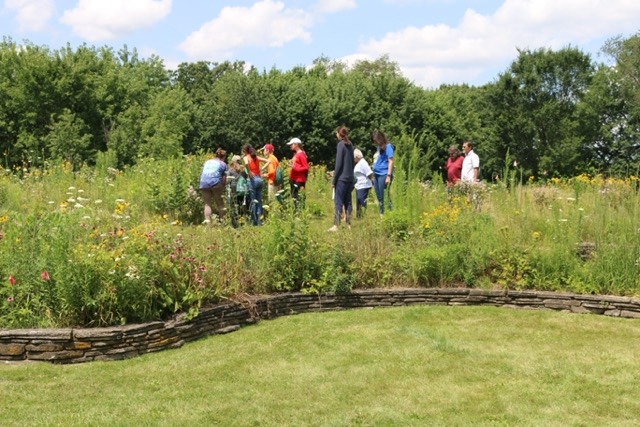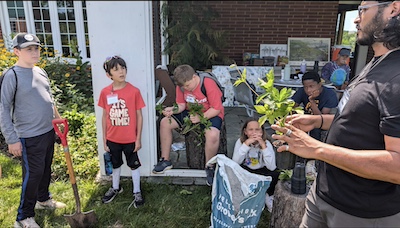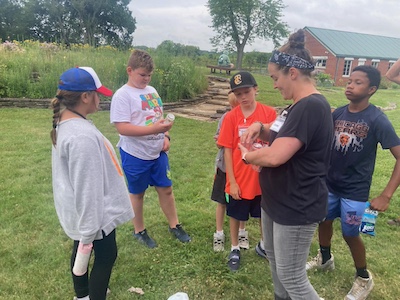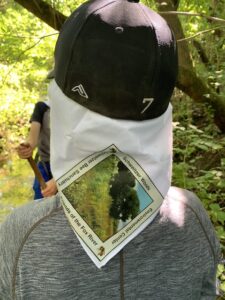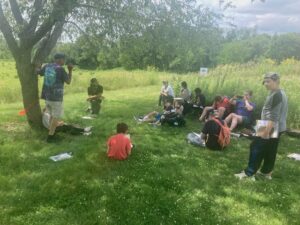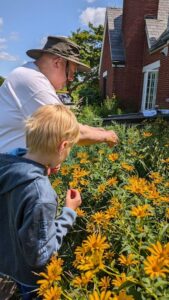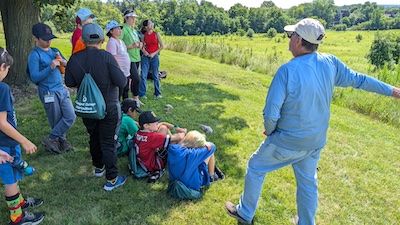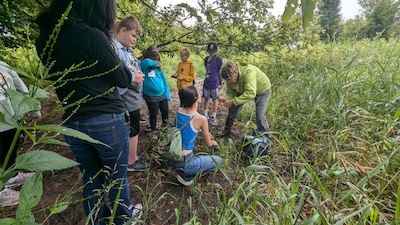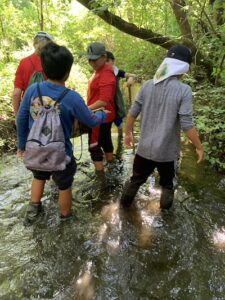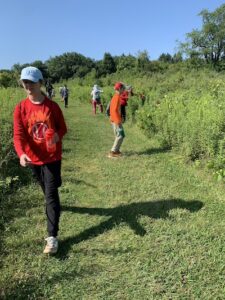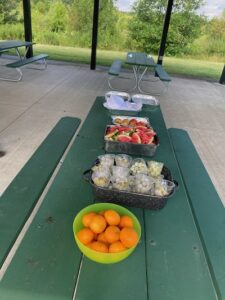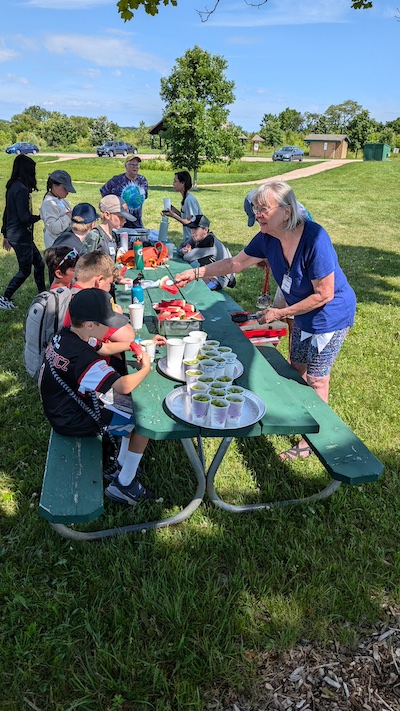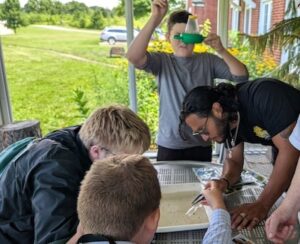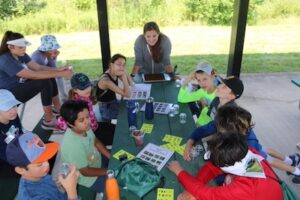Friends of the Fox River (FOTFR) is the leader
in providing watershed experiences for children.
Since mid-April, FOTFR has delivered our services to over 2500 youth. The standard format is hosting students in their local streams to collect physical, chemical, and biological data. It is real science with a real purpose.
But FOTFR meets residents where they are to build a watershed community of caretakers. Examples are: a school campus, at the Pingree Grove Community Garden for a library program on fireflies, or a Girl Scout field day in Campton Hills.
Our First Summer Camp with Dundee Township Park District
This July FOTFR welcomed 9-to-14-year-old aspiring naturalists to Schweitzer Woods Forest Preserve.
As it was our first summer camp at Schweitzer, it required a lot preparation. Daily topics included: plants, animals, water/soil, Insects, and human impact.
New FOTFR educators Courtney Boe and Frankie Garcia prepped and lead the activities. The team was further filled with retired educators/volunteers Holly Yee, Doug Williamson, and Gary Swick. Veteran local educators, Michelle Soland and Don Purn invested over a month of assembling support materials.
Administrator LuAnne Lewandowski (also a former teacher) served as the program director and one of the snack break chefs. The team was dedicated to providing the highest quality experience to our campers. We achieved our goal.
Camper Swag – All Campers Received:
Commemorative bandana that served as a cooling cloth, mosquito bite prevention in the deep woods, and fashion wear.
Journals
Drawstring bags
Native wild geranium plant
Bee Sanctuary pin
Milkweed seed ball
Observation evidence on their phones
Countless memories
Camp Concept
The concept of the camp was to develop an awareness of the biodiversity of Schweitzer Woods and better understanding of the ecosystem relationships all around us. This understanding leads to an enhanced appreciation and a stronger sense of confidence and stewardship in the natural environment.
The awareness of human’s relationship with the land as the Indigenous people here, the European settlers, and modern residents was woven into daily lessons. Skill development and field exercises helped demonstrate how our abilities and understanding have changed technologically and as a culture. Using phones to identify birds sounds and using a hand compass to find direction were examples of tools.
Seeing the land as a hunter/gather, agriculturist, and now as a commodity consumer were discussed. We also talked about our impacts upon the land as temporary visitors, farmers and lawn maintainers.
Daily Fun and Learning
Each day began with a skill introduction which was followed by a discovery hike using that skill. The hikes were used to show examples of natural concepts like native and invasive plants.
Although each day had a different focus, every day blended all the different subject areas.
Each hike went to a different ecosystem and geographic area of the 160 acres. Hiking was a camper favorite as they blended skill use, vocabulary development, concept examples and application; there were many surprises, like finding a tree frog, a snake 3-feet up on a blackberry bush, or two red-winged blackbirds mobbing a red-tailed hawk high overhead.
Camp was exciting and engaging every day.
Sharing Fruit and Activity Time
Snack break of fruit and some delicious surprises followed the hikes in the shelter. The break was followed by an activity that focused upon the day’s main topics: plants, animals, water/soil, insects, and human impact.
These often involved applying new knowledge and the collection of data like plant and insect types and soil and creek health parameters. Days ended at noon with journaling and reflections.
Parents stop by
On the final day, parents were invited to join in the culminating activity of knowledge demonstration and hikes in the Bee Sanctuary led by the campers.
Often summer camps are merely a day care service. It became clear that many of the parents/guardians enrolled these children in our camp as rising star environmentalists. The students’ proud performance and display of great joy on the final day demonstrated that FOTFR was successful in the goal of providing an exceptional outdoor education experience. Parents made a solid investment in the FOTFR summer camp.
Future Plans
With this new experience and the development of a larger education team, FOTFR is exploring monthly, seasonal, and expanded summer camp experiences. Kids in the streams has been our main focus, but expanding the experience into the wider watershed is something we are considering now: broadening our services for building a watershed community of caretakers, which relates directly to our mission.
Camp Quotes
(The following were too light to scan:)
My favorite part of this camp was the hikes.
I loved the creek
I loved holding the bee and the toad.
I really loved exploring the woods and going through the skinny paths (and the berries)!
I liked camp because it really got me to like nature
I loved catching Bob (the grasshopper)
GSwick – These children developed a level of respect that deters them from wanting to squash a random insect, kick apart a fungus, or rip a leaf from a plant. They are in awe of nature. And when they harvest a wild blackberry, they are grateful. This is a culture needed for planetary harmony.

